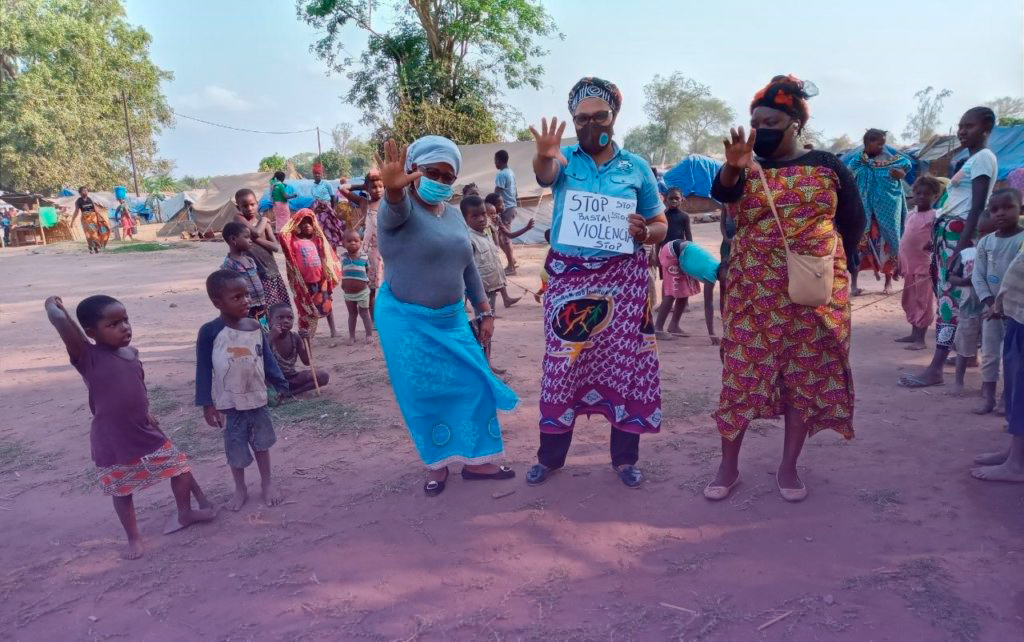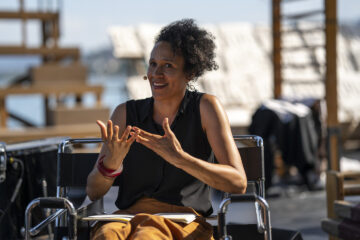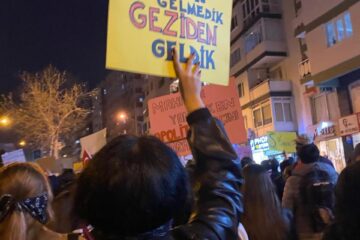A lot of people are still ignorant about Africa. Many people think that Africa is one country. The other day I was talking to someone who said, “At least, you know, for Africa you should do like that.” People talk and think as if it was just a country. Africa is a continent and we have different political contexts. Each country in Africa has issues which are not monolithic, they’re not static or simple.
In the women’s movement, we have to find something common between us, because we have unified problems. We see the expansion of grassroots women mobilization going beyond conflict, highlighting struggles every day, such as reproduction, health, food, education. Right now the minorities communities also have lots of problems. In this current global crisis, we are seeing a lot of women mobilizing their community to respond to the growing threat of COVID-19 that is shaking the world.
We are seeing women taking charge, caring for themselves and caring for one another. We are seeing grassroots women building societies around their community. There are actions grounded in solidarity. We have never seen women come so closely together like we are seeing now. The pandemic has offered a challenge to us, an even bigger challenge for the women.
There are three important lessons that we can learn from the grassroots women. The first is making visible the frontline that women are building to care for their communities. We are talking about essencial work: health, food, security. There has been a lot of tension around communities especially with the arrival of COVID-19, but what we see with the grassroots women mobilizing is resilience. Women are already thinking about alternatives. Our State is not being able to take care of anybody and because everybody is busy with taking care of themselves, nobody would stop and check on the community, look at what the women are doing. But if people do, they would find that women are actually doing a lot of mobilization.
What we see women doing during all this is not being documented or appreciated. People don’t even recognize the work that has been done by women. Women are usually the fastest responders who make contributions to care for their community in times of crisis. We have a group in a place here in Kenya called Kibra. They are members of the World March of Women, and we saw a lot of resilience coming from them. During such a time, these women came together and organized themselves and they taught each other how to make soap to wash their hands.
The second thing is that the impact of COVID-19 is a gendered impact. It has magnified the existing inequality. With the pandemic, the gaps which were there are actually widening. Violence increased during the lockdowns. Accessing health care facilities for reproductive health care is no longer simple. The health resources were diverted elsewhere. The gender impact really brought a huge toll on women and especially grassroots women. To help each other, women started sharing the garden, their medicines, their sources of income. These were places where women were getting sustainability. In times of crises, the women take back to the old way of doing things.
The third thing that is important for us to look at is to taking a feminist approach to leadership. It is very important to do so in times of crisis. I don’t want to say that this really also includes self-care. Many times we take care of the communities and forget about ourselves. It is impossible to help somebody else if you cannot help yourself. I think that right now it is not even about loving yourself, but to take the feminist approach of leadership which also starts with you.
Now we see a lot of fear, despair, and isolation. We saw women isolated by the lockdown, but social distancing is a privilege that just a small quantity of people could afford. Unless you have financial means to stay in the house, it is very difficult. Social isolation took a high toll on mental health as well. When sisters cannot meet, interact, and organize together, then it has a toll on their mental ability to obtain reliable information that people depend on.
What the women artists did to fight against mental health issues was truly beautiful. During the lockdown they didn’t have any way of selling or exposing their art, which is how they make their living. We started to notice small signs of depression. So, to build a support and safe space, we created a YouTube channel where these women could express their art. They could sing, read poetry, speak, give a word of advice. Every time you speak to a screen like that, you have in your mind that you’re speaking to a lot of people. That was the way we found to collectively share our issues and our way forward, our experiences. That is what feminism does. It creates strategies for women during the crisis.
These women created groups to talk about their experiences, shared their knowledge, and taught other women how to take care of themselves, how to make soap, how to deal with the children, how to have access to health facilities. The people won’t talk about this, they won’t share anything about the women’s organization, and about how these grassroots women shared their common experience and how they struggled together for a solution. But we will.
___________________________________________________________________________
Sophie Dowllar is an feminist activist from Kenya. She is a member of the World March of Women International Committee.
This article is an edited version of Sophie’s contribution during the Challenges of Grassroots Feminism Webinar.




